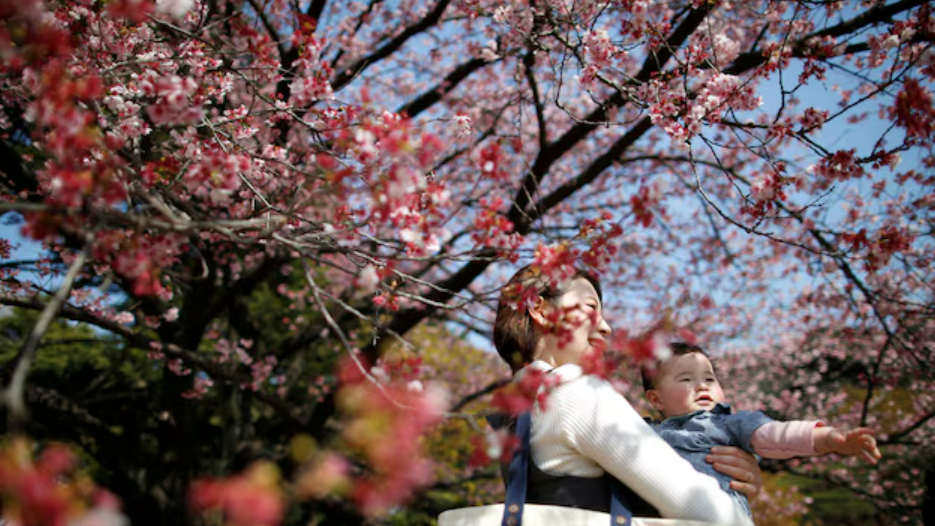## Detailed Analysis: Japan’s Birth Rate Hits Record Low in 2024
Introduction
In 2024, Japan’s birth rate plummeted to a record low, marking the ninth consecutive year of decline. This trend underscores the country’s deepening demographic challenges, including a rapidly aging population and a shrinking workforce. Here, we delve into the factors contributing to this decline and the implications for Japan’s future.
Key Statistics
– Births in 2024: The number of babies born in Japan fell to 720,988, a 5% decrease from 758,631 in 2023[1][2].
– Historical Context: This is the lowest birth rate since records began in 1899[1][3].
– Mortality Rate: Deaths exceeded births by more than double, with 1.62 million deaths recorded in 2024, a 1.8% increase from the previous year[1][2].
– Population Decline: Japan’s overall population decreased by 0.46% to 123.54 million[1].
Factors Contributing to the Decline
1. Delayed Marriages: Young people are increasingly delaying marriage, which is closely linked to childbirth in Japan. Unlike many Western countries, most births in Japan occur within marriage[2].
2. Economic Factors: The high cost of education and a stagnant economy have discouraged young people from starting families. Additionally, changing lifestyles and societal pressures contribute to the trend[1][2].
3. Impact of COVID-19: The pandemic led to a significant decline in marriages, which has only recently begun to recover. In 2024, marriages increased by 2.2% but remain below pre-pandemic levels[2].
Comparison with South Korea
– South Korea’s Turnaround: In contrast, South Korea saw its fertility rate rise in 2024 for the first time in over a decade, thanks to government initiatives aimed at supporting young families[2].
– Policy Differences: South Korea’s success is attributed to policies focusing on work-family balance, childcare support, and housing assistance, as well as corporate encouragement for employees to become parents[2].
Implications and Future Directions
The demographic crisis in Japan poses significant challenges for its economy and social security systems. With a shrinking workforce supporting a growing elderly population, the government faces pressure to implement effective policies to boost birth rates and address the gender gap and job opportunities for young people.
Recommendations for Policy Makers
1. Enhance Family Support: Implement policies similar to South Korea’s, focusing on childcare, housing, and work-life balance to encourage young people to start families.
2. Economic Incentives: Offer economic incentives, such as subsidies for education and childcare, to alleviate financial burdens on families.
3. Promote Gender Equality: Encourage gender equality in the workplace to improve job opportunities for women and support family planning.
Conclusion
Japan’s record-low birth rate in 2024 highlights the urgent need for comprehensive policy reforms to address the demographic challenges facing the country. By learning from successful strategies in neighboring countries and addressing the root causes of the decline, Japan can work towards stabilizing its population and ensuring a sustainable future.
—
References
[1] [Malay Mail: Japan’s Birth Rate Plunges to New Low in 2024](https://www.malaymail.com/news/life/2025/02/27/japans-birth-rate-plunges-to-new-low-in-2024-as-population-decline-accelerates/168141)
[2] [China Daily Asia: Japan’s New Births Fall 9 Straight Years to Record Low in 2024](https://www.chinadailyasia.com/article/605668)
[3] [Daily Excelsior: Japan’s Birth Rate Drops to Record Low of 721,000 People in 2024](https://www.dailyexcelsior.com/japans-birth-rate-drops-to-record-low-of-721000-people-in-2024-reports/)
Related sources:











